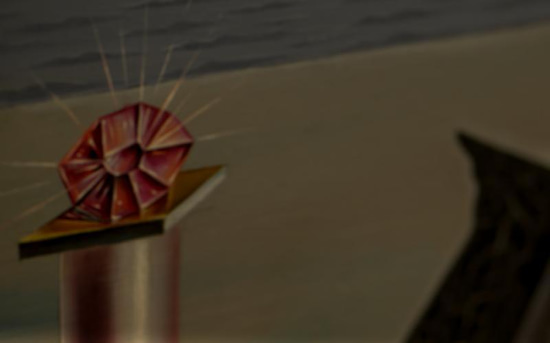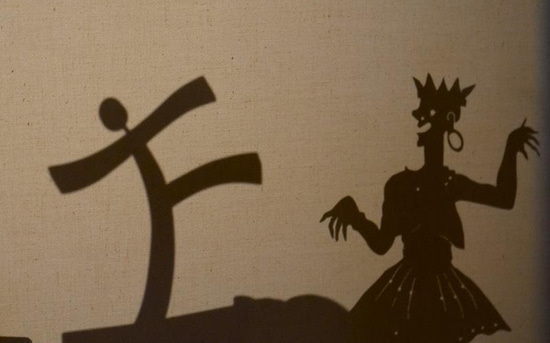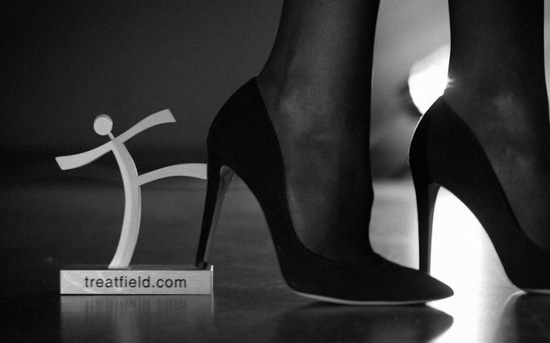We experience a breakup just like any other grief, a serious loss in life. We can't speed up this process, but we can make it a little easier—by taking care of ourselves and having the right attitude toward our own feelings.
What can you do to survive a breakup, how can you help yourself, and what can you expect from psychotherapy? Treatfield specialists tell us more.
What stages do we go through when we're experiencing a breakup?
Answer by psychologist Natalia Trushina  When we experience a breakup, we go through the stages characteristic of grieving, that is, the stages of denial, anger, bargaining, depression, and acceptance.
When we experience a breakup, we go through the stages characteristic of grieving, that is, the stages of denial, anger, bargaining, depression, and acceptance.
It's important to understand that these phases are quite fluid—sometimes they don't happen in order, but "mixed," and sometimes a person moves through these experiences as if in a spiral. Any variant of grieving is normal, as long as you don't stop yourself. Interrupting at any phase or trying to forbid yourself from feeling a certain emotion and not letting it out can lead to trauma.
Shock and denial are the first to occur. This can manifest as a strange calmness, a freezing of feelings, disbelief. The decision has been made, but it "hasn't sunk in" yet. The couple may continue to live their usual life as if nothing happened. Then come anger, bargaining, and depression (which together make up a painful goodbye).
Anger and devaluation help to separate from the partner and increase the distance. A person who doesn't allow themselves to feel anger toward the other during the anger phase may "turn" this anger on themselves, deciding "it's all my fault," or "I don't deserve another good relationship."
Bargaining is an attempt to change the inevitable and slightly deceive yourself: "what if I had... then," "maybe I should have... then," "what if I try and he (she) will understand and forgive," and so on. All of this is to protect yourself from pain (it hurts to lose something valuable and break an attachment) and from fear (the unknown is scary).
At the depression stage, a person meets pain, fear, despair, profound sadness, and emptiness face to face. Where there was once something valuable, now it's empty—and this can create a feeling as if your skin has been peeled off: any movement nearby is unbearable. At this stage, all your energy goes into surviving this tangle of feelings, and there's not enough left for normal life. This is completely normal, and you need to treat this stage like a bad flu: give yourself rest, if possible almost a bed rest, plenty of support and care, and push away stressful factors as far as possible. Reduce all life's tasks to a minimum: it's better to save heroic feats for later.
The depression stage is often prematurely interrupted if those around you or the grieving person themselves say things like "how long are you going to cry, forget it, go out, find someone new, he (she) isn't worth it." Suppressed, repressed, and un-grieved sorrow comes back in the form of sudden anxiety attacks, uncontrolled emotional outbursts, apathy, and sometimes poor health and psychosomatic illnesses (headaches, digestive problems, exacerbation of chronic diseases). So people who try to get through a breakup faster, "save" on their feelings (saying "why waste time on them, I need to move on") and speed up the natural progression of all phases, end up losing more than they gain.
We recommend reading: Breakup. A Survival Guide
If you give yourself enough time to get through this "emotional flu," it will gradually subside, and then life reorganization and experience integration will begin, leading to the acceptance of the new situation. After this, a person can move on, the pain of the breakup subsides, and the past relationship becomes a thing of the past—a finished chapter in the book of life, after which new, interesting chapters begin.

How to support yourself after a breakup?
Answer by psychologist Evgenia Chernega
1. You're going to feel bad for a while—and that's okay
When you break up, chemical changes happen in your brain that are just as powerful as when you fall in love. It's important to accept that you'll feel bad for a while after the breakup, and that's normal, even if you were the one who initiated it. Don't expect yourself to get over it quickly, and don't get upset that you can't. It's like a wound healing: you can help the healing process and make it more comfortable, but you can't significantly speed it up. It's important to allow yourself to be sad and grieve the loss.
2. Pay attention to what brings you joy and a sense of life
The good news is that our brain is capable of simultaneously grieving one thing and being happy about another. So pay attention to your resources—what makes you happy, what engages you in life, what makes you feel alive. Some people recharge by getting out in nature, others by wearing nice clothes. Going to a concert, planning a vacation, reading books, or trying fly yoga, singing, or shopping. Don't strive for success in these activities—let them have no purpose other than giving you pleasure and joy.
And also—hug your friends and loved ones more often. Hugs reduce the production of the stress hormone cortisol and simultaneously release oxytocin, which gives a feeling of security and safety.
3. Strengthen your support systems
Strengthen what supports you and gives you ground to stand on—self-care and self-support. This can be a daily routine, regular workouts, rituals, developing a habit of saving five dollars a day for a sense of security, Saturday brunches with a friend, having a friend who's always ready to listen, or psychotherapy. Listen to yourself—what gives you a sense of support? And what brings you joy? For one person, sports can provide support and strength by strengthening them through their body; for another, it can bring moments of fun and joy, and for a third, it can be a burden. There are no universal answers; listen to yourself and believe what you hear.
4. Look for what resonates with your values
Most likely, love and relationships aren't the only values in your life; there's also creativity, freedom, beauty, adventure, health, humor, self-development, friendship, and others. What would your life look like now if it had 10% more adventure? What could you add to it? Maybe learn how to wakeboard, go to driving school, or start getting around town on a bike?
5. Pay attention to your self-worth and authenticity
In close contact, we influence each other, and after a breakup, we may want to "become a little more ourselves." Not the self that we were with our partner, but the self that now exists without them. Maybe you want to change something in your home decor—something you always intended to change, but your partner didn't like it. Or travel to a country that he or she wasn't interested in, while you used to travel to those that you both liked. Use this period as an opportunity to become even more yourself and strengthen your authenticity.
We recommend reading: Depression Has Its Meaning
How not to harm yourself?
Answer by psychologist Natalia Sharygina
 1. Don't go "wild" to fill the inner void
1. Don't go "wild" to fill the inner void
Most likely, some time after the breakup, you'll feel a certain emptiness in your soul, because you've gotten used to having another person next to you for so long. At first, it will be very difficult to deal with this new state. Refrain from trying to fill the void with drugs, alcohol, or a string of strangers in your bed.
I suggest finding healthier ways to fill the void left by the breakup: for example, breathing exercises, body-oriented therapy in any form, psychological groups, yoga, pilates, or even dynamic workouts at a sports club or swimming.
Of course, no "surrogates for love" can replace a person for you—and that's why it's more helpful to engage in something that will give you a sense of satisfaction without destroying your own body.
2. Don't accumulate feelings inside
If you're experiencing a breakup very painfully, it's a good idea to express the full range of feelings that have accumulated. If your partner, so to speak, "slipped away" from the dialogue, it's necessary, for your own sake, to start writing emotional letters so you don't keep the process bottled up inside. Give yourself at least a week, half an hour every evening. It often happens that the addressee isn't ready to personally accept your anger, despair, resentment, disappointment, or even gratitude for the time you spent together, and in that case, an emotional letter will be a good way to cleanse yourself of emotional buildup.
We also recommend reading: How to Erase Bad Memories
Just write down everything you want to express on paper, and in the end, do whatever you feel is necessary with the letter. You can throw it away, burn it, rip it, shred it, or crumple it up. Devote attention to your feelings with a personal psychotherapist—and then the difficult period won't drag on into "long farewells, bitter tears." Give yourself and your soul time and space.
3. Don't ignore the need for new experiences and physical comfort
Third, to fill yourself with a new atmosphere, new experiences, and pleasant people, I want to suggest that you go on a relaxing trip where you'll have the opportunity to really feel your body through good weather, a warm sea, delicious food, and fresh air. Small outings with close friends to the movies, the theater, or favorite places can also provide a good springboard for a new wave in life and help you get through what happened. Respect and pamper yourself. Value human freedom; even if someone didn't choose you, they have their own reasons for it, and they don't necessarily all lie with you. Perhaps the person freed up space next to you for something or someone new, who is a better fit for you.

How does psychotherapy help you get through a breakup?
Answer by psychologist Anton Fedorets
Clients often come to me who haven't grieved their breakup, even though their relationship ended a year, two, or even 10 years ago. The duration doesn't matter: if the relationship with a person isn't finished, they remain inside us.
We involuntarily remember our ex-partner; we want to scroll through their social media or tell them something. All of these are signs of an unfinished relationship.
If the relationship wasn't ended and mourned, the psychologist's job is to start the grieving process without trying to calm or comfort the client. After all, we're not just grieving the person, but also the time spent with them, their image, and our sense of self with them. It's important that all of this is felt and worked through before we're ready to let go of the past.
We recommend watching: What to do if your love is unrequited?
I often suggest this exercise to clients who are trying to get through a breakup. The exercise consists of three stages, and it should be done in writing.
Take as much time as you need; you can do it in several sittings.
I. Imagine and describe the following images
(4 minutes for each):
1. The image of your ex-partner—just the image.
2. What you loved about them, what you liked about them.
3. What you didn't love about them.
4. How other people knew them.
5. How only you knew them.
II. Write two letters
Write down everything you want to say to him or her. It's important to remember both the positive and negative aspects of your relationship. How did you change because of the relationship? What lesson did you learn? What can you be thankful for?
You can break the letter into 3 topics:
1. What you're grateful for in the relationship.
2. What you didn't get enough of, what you're hurt about, what you didn't manage to get in the relationship.
3. What you want to wish for this person in the future.
Once your letter is ready, take a new sheet of paper and, with your non-dominant hand (that is, your left hand for right-handers and vice versa), write a letter to yourself from him or her.
III. Mentally give a gift
Close your eyes and imagine a gift you would like to give to your ex-partner. Decipher this gift and understand its symbolic meaning. Then choose a gift that he or she wants to give to you—and decipher that as well.
Afterward, listen to yourself. What do you feel? Resentment, gratitude, relief?
---
Any breakup is a loss that's important to grieve and experience. If you get a cut, you'll feel pain, and it's normal to feel pain. The wound heals, and the pain subsides, but a scar remains where the cut was. The same is true for relationships: the deeper they were, the more intense the pain and the larger the scar.
There's a myth that scars are stronger areas of the skin. But that's not true: they are just as strong as the rest of the skin, they're just rougher. So deep wounds don't make us stronger, but they can make us rougher.
A psychologist or psychotherapist helps you end a relationship in such a way that the breakup doesn't leave too big or too rough of a scar. The therapist helps you say goodbye and find a form that is right for you.
We also recommend reading: How to Know if a Couple Has a Future









